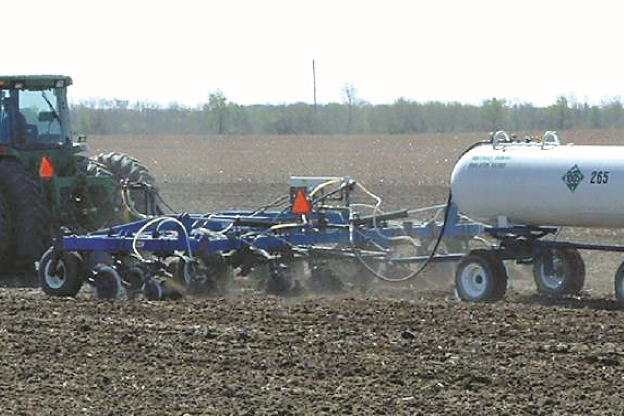
The MN lege needs to get real about nitrate pollution
Rep. Rick Hansen (DFL-South St. Paul) has been doing a frankly kick-ass job of taking point on this issue.
Long before he was a state lawmaker, Rep. Rick Hansen, DFL-South St. Paul worked for the Minnesota Department of Agriculture, helping develop best practices for managing nitrogen fertilizer.
Three decades later, he says the state’s approach to preventing nitrogen pollution hasn’t worked.
Hansen, chair of the House environment committee, thinks the state should raise its fees on fertilizer, the source of the majority of nitrate in southeast Minnesota waters.
“We have tried incentives. We’ve tried education. We’ve tried voluntary management practices,” Hansen said. “We’ve had meetings after meetings … and the nitrogen fertilizer use continues to go up.”
(MPR)
As I’ve noted, thanks to modern farming practices relentlessly promoted by Big Ag southwest Minnesota is as polluted as almost anywhere on earth. Contamination in SE MN, referred to in the MPR article, only adds to the urgency. Of course there are no overnight fixes. It’s largely a matter of immediately beginning to end fertilizer (and other chemical) overuse, and letting nature do its thing from there. And while higher fees would be a place to start, it’s going to take a lot more than that. Getting rid of ethanol fuel would be a huge help, but as with so many other things that actually make great sense it’s a pipe dream to expect that to happen soon.
A whole lot of “informational” media about farming (including online) is barely disguised Big Ag propaganda aka “cropaganda.” As an early riser I sometimes catch AgDay at 530AM on KSTC. Every episode you get plenty, especially during the commercials, about “maximizing yield,” which is the primary buzzphrase Big Ag uses to justify its promotion of environmentally (and often socially) devastating practices worldwide. Here in the U.S., where probably about a third of food goes to waste (there’s a range of estimates), it most certainly does not need to be all about maximum yields. There needs to be an immediate shift to sustainable practices. And there’s no way in hell the industry is going to do that on its own.
Given that it will be led by the greedheads of Big Ag – especially Big Ethanol – the opposition even to little hikes in fertilizer fees, if momentum does develop, will be utterly without class or scruples. But we’re used to that.
Comment from Joe Musich: Alternatives to corn do exist…
Thanks for your feedback. If we like what you have to say, it may appear in a future post of reader reactions.


